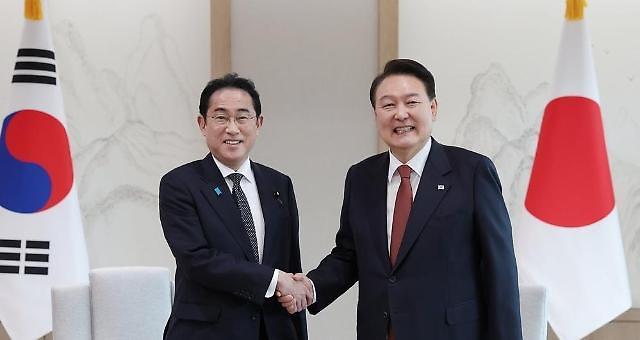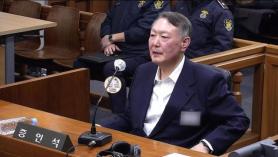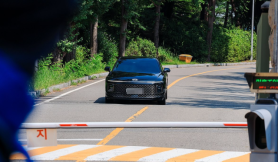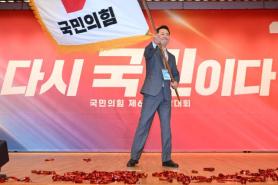
According to the South Korean presidential office, Yoon and Kishida will meet on July 12. Although a presidential office official told reporters at a pressroom in Lithuania on July 11 that "President Yoon had not pre-coordinated with his counterpart on what would be discussed through the meeting," the official predicted that the two leaders would share their thoughts about various topics including the discharge of contaminated water in Fukushima, where Japan's nuclear power plant complex once stood before it went into a meltdown stage after a massive earthquake in 2011, and South Korea-Japan currency swap.
Japan's decision to discharge became a controversial issue in South Korea. For many years, people in South Korea and China expressed concern about the "treated" water that could contain harmful radioactive elements being released into the sea and polluting the environment. According to a survey of one thousand South Korean people aged 18 years and older, conducted by the Korea Federation of Environmental Movements in May, 85.4 percent said that they oppose the discharge of contaminated water into the sea and 72.3 percent said that they would reduce the consumption of seafood when Japan starts the discharge.
The Fukushima accident is regarded as the world's worst nuclear accident since the Chernobyl nuclear disaster in 1986 when a nuclear reactor exploded and released about five percent of its reactor core into the environment. According to Tokyo Electric Power Company (TEPCO), about 140 tons of water is used every day to cool down the reactor that melted down and prevent it from overheating. The water that was used as a coolant for the reactor contains radioactive elements including cesium-137, strontium-90, hydrogen-3 known as tritium, and iodine-131.
TEPCO treats the water to reduce the radioactive content through a process described as the advanced liquid-processing system (ALPS) and stores it in more than 1,000 stainless steel canisters on the abandoned nuclear power plant site. The ALPS process removes 62 of the 64 radioactive elements to bring the concentration level of radionuclides below Japan's regulatory limits set in 2022. The ALPS process does not remove carbon-14 and tritium.
In early July, Japan said that its foreign minister Yoshimasa Hayashi could meet his South Korean and Chinese counterparts at the Association of Southeast Asian Nations-related foreign ministers' meeting scheduled to be held in Indonesia in mid-July to seek understanding of the discharge of contaminated water, referred to as "treated water" by Japan, into the sea of Fukushima.
The official said, regarding the Fukushima contaminated water, "after all, it was a natural disaster event that took place some 12 or 13 years ago," and Seoul and Tokyo normalized their relations in March amid Japan and Asia-Pacific countries sharing the pain of the aftermath of the massive earthquake in Japan.
The Tokyo summit meeting between Yoon and Kishida held in March was an icebreaker for the two countries that were locked in a diplomatic row over a decision by South Korea's highest court in October 2018. Justices acknowledged individual rights to get compensation for wartime forced labor during Imperial Japan's colonial rule (1910~1945). The Supreme Court upheld a 2013 ruling that ordered Japan's Nippon Steel & Sumitomo Metal Corp. to pay 100 million won each to four Korean victims.
After the Supreme Court's ruling, Japan took retaliatory steps in 2019 to regulate exports of three key semiconductor materials to South Korea in an effort to hamper South Korea's economic growth based on exports of semiconductors, cars, and electronics. Tokyo also removed its neighboring country from a "white list" of trusted trading partners. South Korea hit back with similar steps and decided to file a lawsuit against Japan with the World Trade Organization. The international relations between the two countries remained frozen since.
The Tokyo summit meeting between the leaders from South Korea and Japan was the first one that was held in 12 years since former South Korean President Lee Myoung-bak met former Japanese Prime Noda Yoshihiko in Japan's capital city in 2011.
Copyright ⓒ Aju Press All rights reserved.




